Explore the top rated Boerne drug rehabs with confidence. We've analyzed each of the 25 addiction treatment centers in Boerne, TX for patient reviews, clinical credentials, transparency, and brand reputation to identify the best rehab programs.
Filter by inpatient, outpatient, detox, health insurance accepted, specialty treatment programs offered, and more to quickly find the perfect drug and alcohol rehab in Boerne today.
Insurance details are not available for this location.
| Name / Address / Rating | Description | Treatments / Programs / Payment Options | Review / Contact | Images |
|---|---|---|---|---|
La Hacienda Treatment Center’s Community Outreach Center is located in San Antonio, Texas. This is an outpatient facility that serves adults who are navigating recovery from drug or alcohol use disorders. They accept policies for most major insurance providers. This community outreach center serves as a supportive meeting place where alumni of t | Treatments Programs Payment Options | If you or your loved one needs tough love, education, and support this place is for you. I know this journey is so incredibly hard and scary but there is help out here when you are ready. I really appreciate the guidance and understanding they taught me to help others. I agree rehab is expensive without insurance but this place changes and saves lives when you are ready.
Stephanie Ann Morgan
1 year ago
Would recommend to any client
Jon McKenzie
1 year ago
I got sober here and wouldn’t hesitate to recommend LaHa to someone I love!
Ellie Jesse
1 year ago
| 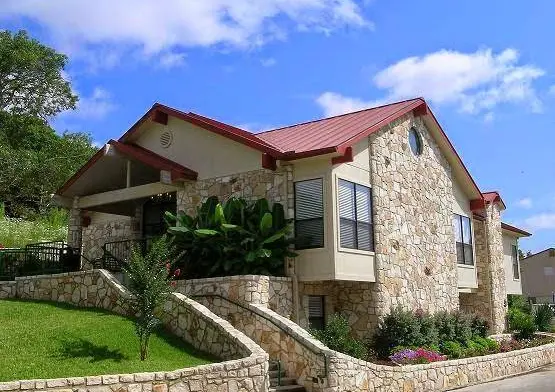
2 
| |
Located in San Antonio, Texas, Shavano Park VA Clinic is a drug and alcohol addiction clinic that serves veterans who are struggling with addiction. They also treat co-occurring mental health disorders, which can include depression, anxiety, bipolar disorder, PTSD and schizophrenia. Addiction and mental health can often go hand-in-hand, and with th | Treatments Programs Payment Options | I am a patient here and I love it! It’s still a hidden gem! Hardly any wait time and everyone is helpful and informative.
belinda acconcia
2 months ago
Bridget at the front desk is the nicest lady. Very helpful and inviting. I hope she has a blessed day
Connor M
9 months ago
For free health care, I don’t know why I complain. Probably because I'm a salty lil Karen who can barely get out of bed and when I do; I'm mad 😂 I've been to several VAs and Shavano typically completes everything I ask for help with, even if it takes forever. And I really like Dr K.
Overall with VA healthcare, or pretty much anything nowdays; being direct and asking for what you need WITH UNLIMITED PATIENCE gets the best results.
***ORIGINAL POST***
I've been seeing my Shavano Park team since October, and I like the location and staff. Dr K is great. Today there was some hub-bub with the fire department and I was forgotten about in the waiting room and ended up having to be there a few extra hours😂 The pros to this was the waiting room was comfortable, the staff was funny and I got to get halfway through my new library book. The only suggestion I would make would be maybe some feng shui (zen water fountain and tranquil pictures perhaps?) and coffee station/healthy snacks for the waiting room.
“Where there’s a smile, luck arrives.”
Katie Rae
11 months ago
| 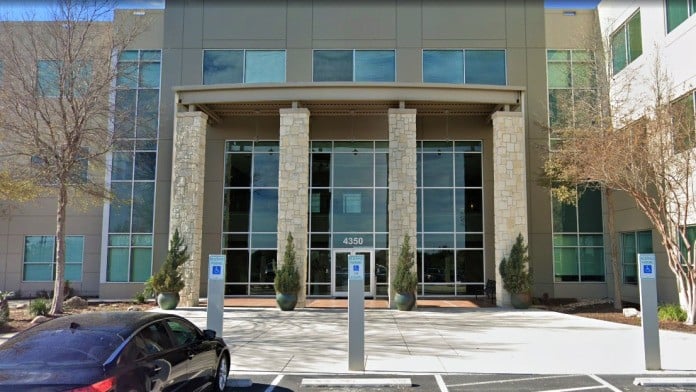
2 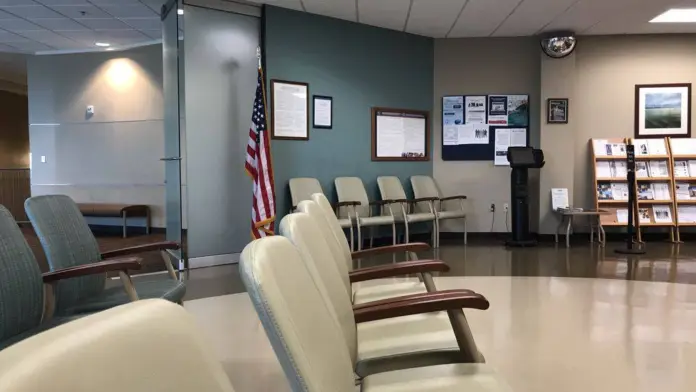
| |
San Antonio, Texas | Rise Recovery’s Charlie Naylor Campus is located in San Antonio, Texas. It’s an addiction and mental health treatment facility that has helped young adults and families overcome drug and alcohol addictions for more than 40 years. Young adults seeking recovery from substance use disorders can take advantage of the clinic’s Youth Recovery | Treatments Programs Payment Options | My daughter attended Rise Inspire Academy for 2½ years and graduated in 2025. We were referred to the program by a close friend who works in the recovery community, and I'm truly grateful for that connection. Rise made a meaningful impact in my daughter’s life. She began her journey to recovery in 2023, and today, she’s the only clean and sober student in her graduating class. That speaks volumes about her commitment — and the support she received.
Throughout her time there, my daughter was offered counseling, coaching, and a safe place to heal and grow. The program isn’t magic, and it’s not easy. But for students who are ready to put in the work, it can work. The staff includes some very kind, devoted individuals who truly care about the kids they serve. For that, I’m thankful.
However, my experience as a parent was mixed. I found communication with the staff to be somewhat lacking. It often felt like they were focused entirely on my child — which is important — but I also felt left out of the loop and that my feedback was not always welcomed or acknowledged. That made things challenging at times.
One concern I want to raise is how my daughter was led to believe she had a chance to work at the school after graduation. She went through the process of creating a recovery plan, submitting a resume, and even had an interview with the director, Evita. But in the end, nothing came of it, with no clear explanation. I can’t help but feel this decision may have been influenced by my own willingness to speak up about certain safety concerns and the need for stronger leadership. That was disappointing, especially after the growth and hard work my daughter had shown.
Despite the challenges, I do strongly recommend Rise Inspire Academy to families with teens struggling with substance abuse. This school offers a life-changing opportunity for young people — but it requires effort, honesty, and a desire to change. For those who are ready, this program can be the turning point.
M R
2 months ago
Group sessions and a safe place for your kid to hang out. Helped my family a lot!
David Brown
1 year ago
Loved the experience....
Lynel Lowery
2 years ago
| |
San Antonio, Texas | If you’re a veteran seeking addiction treatment in the San Antonio, Texas, area, you can get support at North Central Federal VA Clinic. They treat any veteran who is struggling to overcome drug or alcohol addiction. Plus, they’re a dual diagnosis center, which means that they treat mental health conditions too, such as depression, anxiety, PTS | Treatments Programs Payment Options | My first time in this facility. Very well organized in the Lab blood draw area. The number system is very effective. The pace was fast. I was number 30th in line. The staff took 25 minutes to get me in the chair. The staff is very knowledgeable and attentive to the patient. Thanks for all you are doing for the veterans.
7 paul
1 month ago
Outstanding experience, wonderful staff, careful and caring care, and very efficient and well-run! I have been so impressed and really couldn't ask for better medical care. Kudos! (-:
Richard Knight
2 months ago
I’ve always received excellent care at this clinic. The people in the lab do an excellent job.
sleepy sloth xbx
5 months ago
| 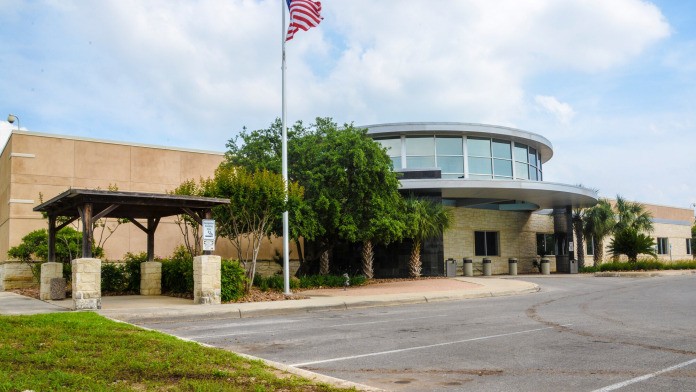
2 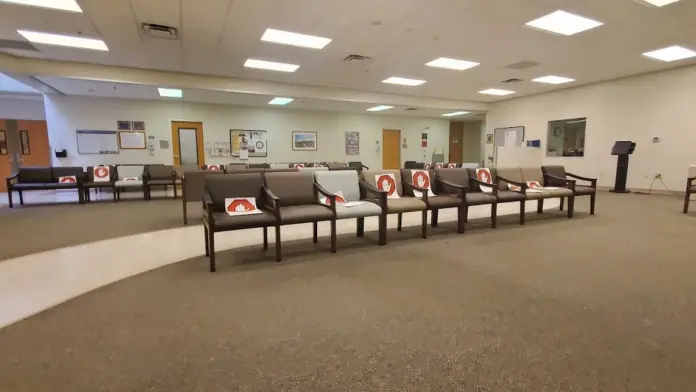
|
San Antonio, Texas | Located in San Antonio, Texas, Clarity Child Guidance Center is a nonprofit mental health treatment center. They help kids and their families overcome emotional and behavioral challenges through partial hospitalization programs (PHP) and general outpatient programs (OP). They strive to give kids complete support in treatment so they can thrive. It | Treatments Programs Payment Options | This place had its days, sure, but I know they tried their best. Like when I got EPS, the nurses immediately started getting help and calling the doctor, they knew what was wrong and got me help for it. Ive been here (Clarity) multiple times, and the staff are amazing, especially Jewels, Elijah, and the rec therapists. I haven't been here in awhile, but I would feel safe going here again if needed, if it came down to that. The doctor i had, Reeves, was absolutely amazing and I loved how much he cares for his patients, including the ones marked as "difficult".
Overall, this place was great. Definitely better than San Antonio Behavioral.
Lilliella Martinez
1 month ago
Amazing treatment center. This place saved my life and I’m back doing what I love. I learned so much about myself and how to live sober. Big shout out to Jules
Ian Keas
1 month ago
Regina Navarro
5 months ago
| 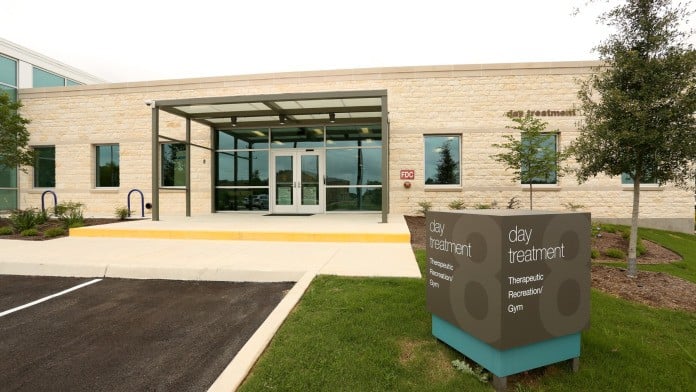
6 6 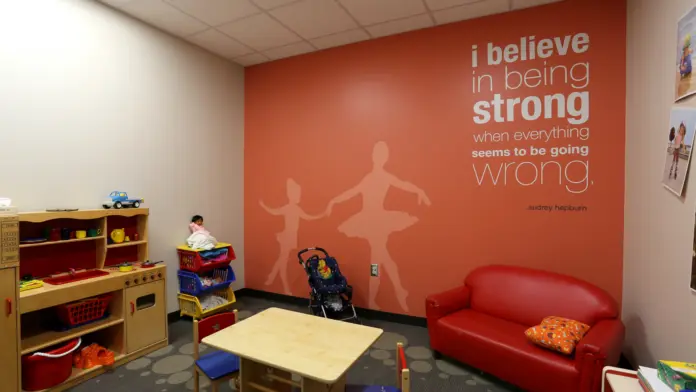
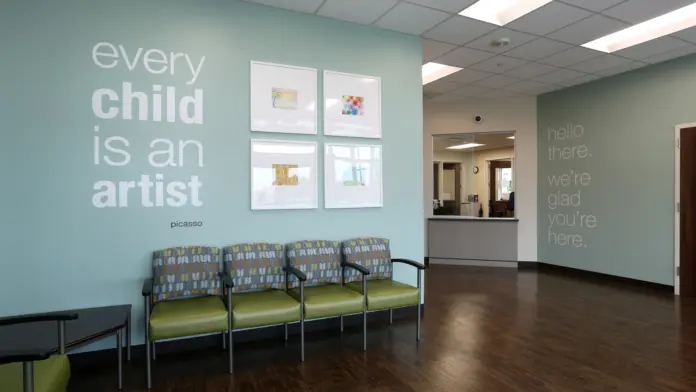
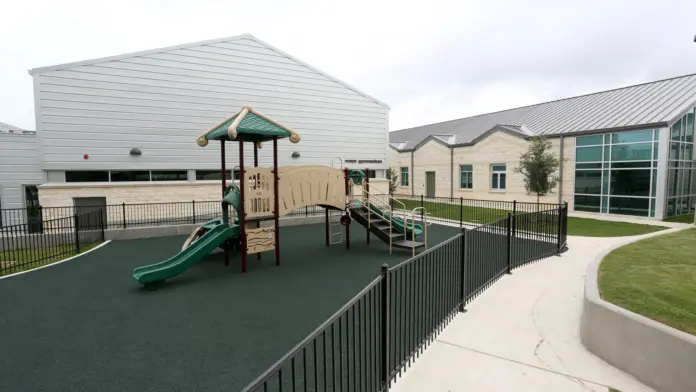
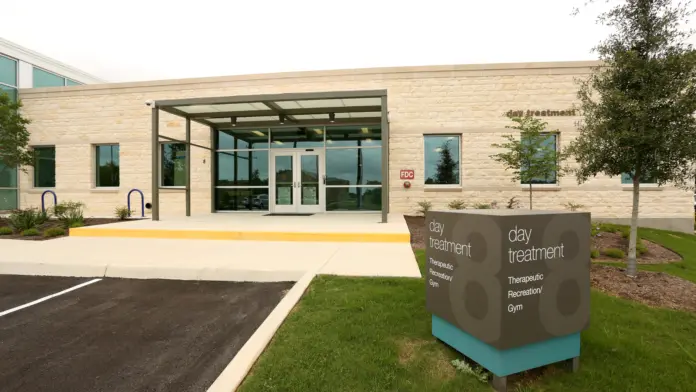
|
San Antonio, Texas | Al Anon Family Groups, located in San Antonio, Texas is a non-profit alcohol and drug rehab that offers treatment for a variety of substance abuse addictions including alcoholism. At Al Anon Family Groups additional levels of care offered include 12-step therapy. Specialty rehab programs at Al Anon Family Groups include tailored care focusing on w | Treatments Programs | Al Anon Family Groups has no reviews yet. Leave a review.
| |
San Antonio, Texas | Centrally located in San Antonio, Texas, A Turning Point provides outpatient care to those with co-occurring mental health and substance use disorders. Accepting private pay and most major insurance, they offer a sliding fee scale to those who qualify. Flexible scheduling is available to accommodate work, school and family commitments. The facility | Treatments Programs Payment Options | A Turning Point has no reviews yet. Leave a review.
| |
The Windmill Wellness Ranch is an inpatient rehab and recovery center located close to San Antonio in Canyon Lake, Texas. Here, they treat adults with substance use and co-occurring (dual diagnosis) disorders. If you’re a veteran then it’s good to know that the center is in-network with TRICARE insurance. They also accept most major insurance. | Treatments Programs Payment Options | “My experience at Windmill Wellness Ranch was truly life-changing. From the moment I arrived, I felt cared for, respected, and supported. The staff went above and beyond to treat me with kindness and compassion, and the program was exactly what I needed. The therapies, group work, and individualized attention helped me heal and grow in ways I never thought possible.
I especially want to thank Ms. Jules, whose wisdom and encouragement always gave me strength. Nate Morgan made a huge impact on me with his guidance and genuine compassion. Haley was always so kind, supportive, and easy to talk to, and Lauren consistently went the extra mile to make sure I felt comfortable and cared for.
The environment is peaceful and encouraging, which made it easier to focus on my recovery and personal growth. I never once felt like ‘just a number’—everyone there genuinely cared about my progress.
I’m leaving Windmill Wellness Ranch with a renewed sense of hope and confidence for the future. I’m incredibly grateful for everything they’ve done for me and would highly recommend it to anyone looking for a place that combines professionalism with true compassion.”
Aaron Carter
1 month ago
As a family member, I highly recommend this place.
This place is beautiful inside and out. They things they offer for people in recovery is amazing. It’s great for both mental health and addicts.
Michelle M
1 month ago
A wonderful staff to work with. Our family member who attended the ranch is a much better person for doing so. Thank you!
Nathan Keas
1 month ago
| 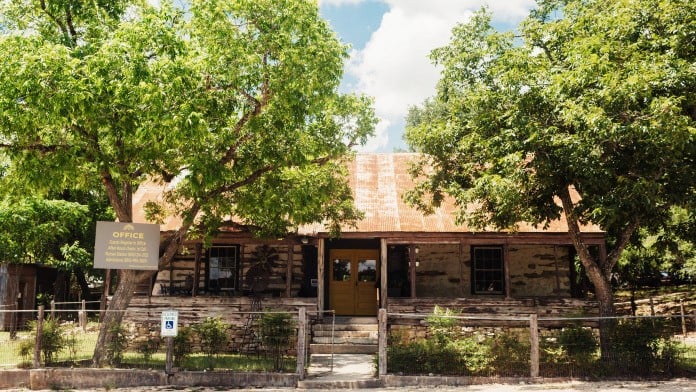
6 6 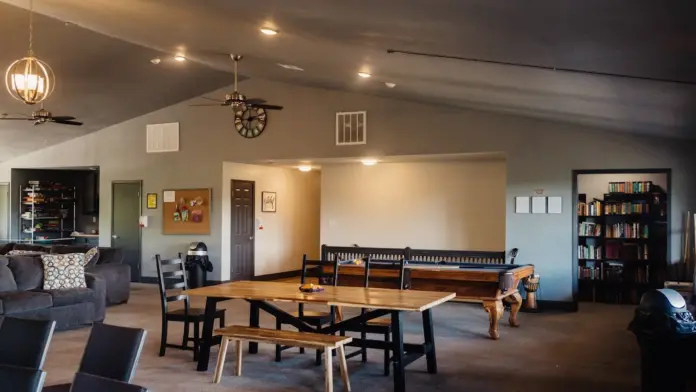
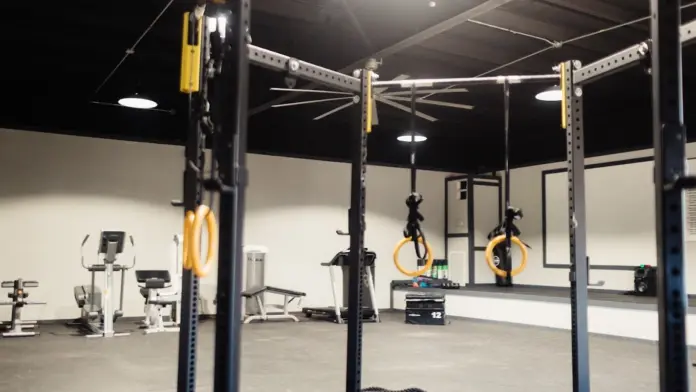
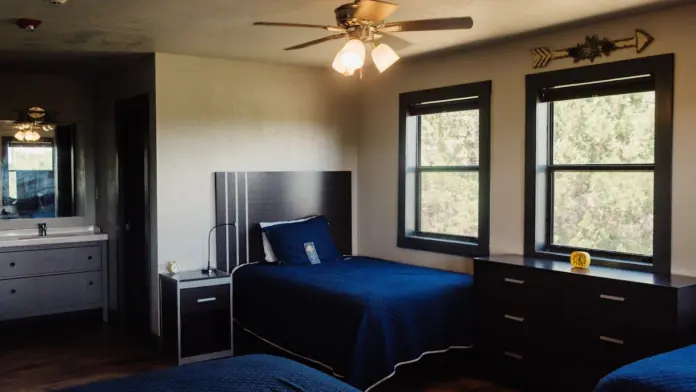

| |
La Hacienda Treatment Center – Community Outreach Center is a drug and alcohol rehab facility located in Kerrville, Texas. They offer rooms for substance abuse support meetings. The facility is for alumni of drug and alcohol treatment programs. The facility is part of the La Hacienda network which has several inpatient and outpatient treatment ce | Treatments Programs Payment Options | From the beginning, the staff was helpful in understanding the process, getting insurance approval, clear communication to the family throughout the process, etc. The staff is wonderful about checking in with the patient post-visit and have developed a vast network of alumni who are deeply connected. LaHa is a place where hope begins and provides the tools to find health and wellness.
Lisa Henthorn
1 month ago
This is an amazing and very spiritual place to began recovery. The councilors there are great. This place saved my life. Highly recommend this place for you or anyone you care about that needs help with addiction.
Angela
11 months ago
Amazing program and the staff genuinely cares.
Nicole
1 year ago
| 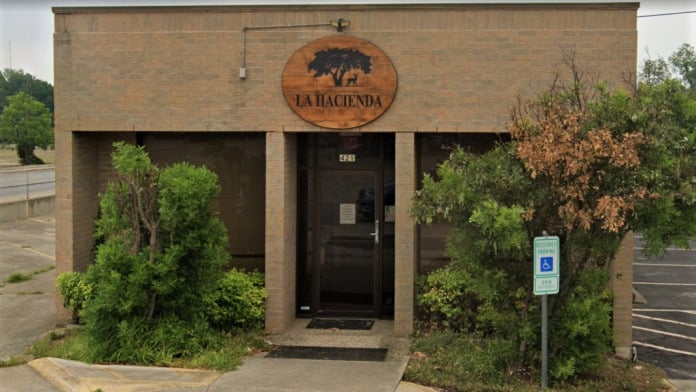
6 6 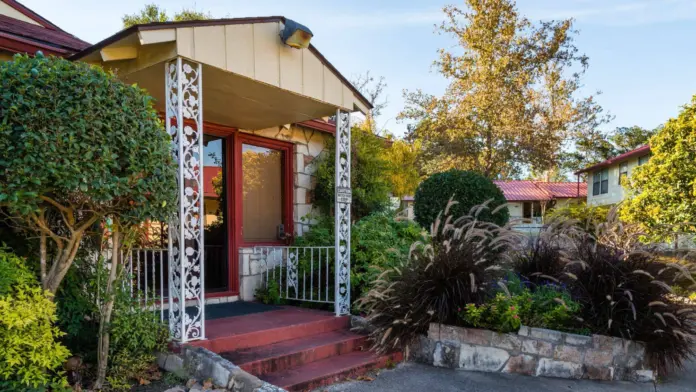


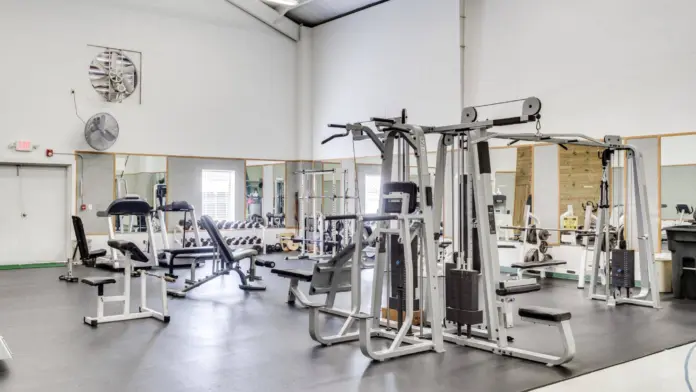
| |
San Antonio, Texas | New Choices Treatment Center in San Antonio, Texas, is a veteran owned addiction treatment center that also provides supportive care if you have a co-occurring mental health disorder. They have a continuum of services here including detox and medically supervised detox. They offer both outpatient and inpatient care at this location. They work with | Treatments Programs Payment Options | Awesome recovery center....the food is 5star, shout out to chef, the appartments are beautiful, clean and comfortable beds cold ac. The counselors are well trained and very professional. The staff is bad ass and will help you with issues if needed and 99% of the people that work here are in recovery so they know exactly what your going through. You will leave the facility to go on client outings on weekends, the gym 3 times a week and off-site na and aa meetings 3 times a week. It's a great place to go if u want to get sober!!
Stewart P
1 month ago
Definitely one of the better rehabs Parker is an awesome case manager always helpful and caring I'm definitely getting the recovery I need.
Gil Judkins
1 month ago
New Choices has truly given me my life back and has been the biggest blessing in my efforts to get sober and take my life back. The level of care and love and peace that this place has brought into my reality of life has given me hope and restored my sanity. I am forever grateful and well on my way into the next step of this journey.
Samantha Morales
1 month ago
| 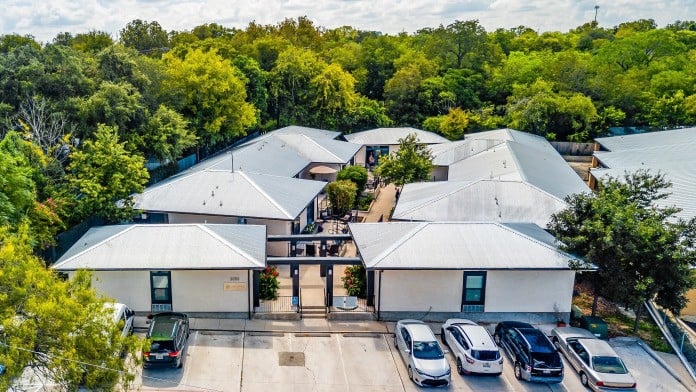
6 6 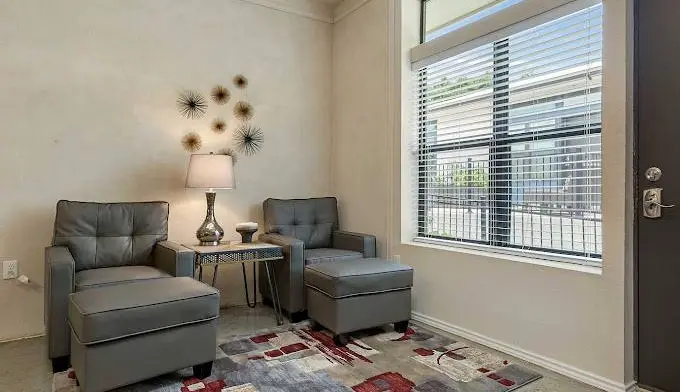
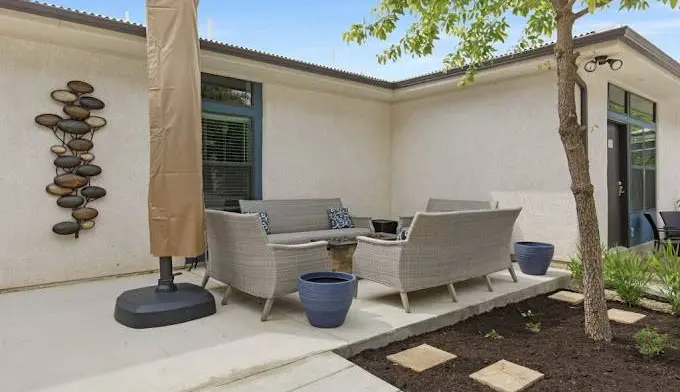


|
San Antonio, Texas | The nonprofit Alpha Home is an alcohol and drug rehab program based in San Antonio, Texas. They offer two levels of treatment for adults: residential treatment (for women) and general outpatient program (OP) for men and women. They use a spiritual model based on the 12 Steps. You’ve probably seen the term “whole person approach” | Treatments Programs Payment Options | Would love to have my daughter there
Rosalinda Gonzales
3 months ago
Been sober since 10/5/2018 and it all started with Alpha Home ❤️
Ashley Criado
1 year ago
Love alpha home.Tracy my counselor is an amazing woman. I still use all the skills of sobriety she taught me on a day to day basis. living is loving.
Ruby Amador
2 years ago
| |
Seguin, Texas | Guadalupe Regional Medical Center is a Seguin, Texas, alcohol and drug rehab. They have intensive outpatient programs (IOPs) and outpatient care for mental health, alcohol, drugs, and opioids. Guadalupe County adults, adolescents, and children can access comprehensive care, including evidence based interventions, anger management, play therapy, and | Treatments Programs Payment Options | I had a small emergency that incidentally required an evaluation of a fracture to my foot that led me to my first ER visit @ GVRH. The ED staff was excellent and I have to send a special thank you to the triage nurse she was so empathetic regarding my foot pain and right away brought a wheelchair with warm blankets and placed my leg up and then a an ice pack. I don’t remember her name but please give her some recognition. Everyone else I encountered while in the room was also impactful for my wellbeing. I thank everyone for excellent care & service. The fracture was confirmed and the ED physician ordered a walking boot and analgesic for pain. So grateful for the care I received. your patient comments everyone!!
BETTY Booher
4 weeks ago
Linda Pena
4 years ago
Linda Hernandez
6 years ago
| 
5 5 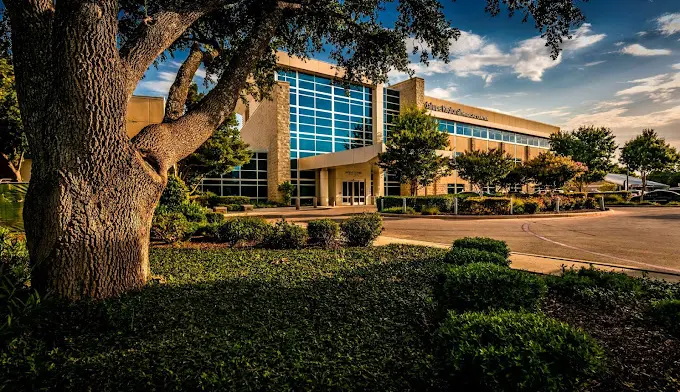
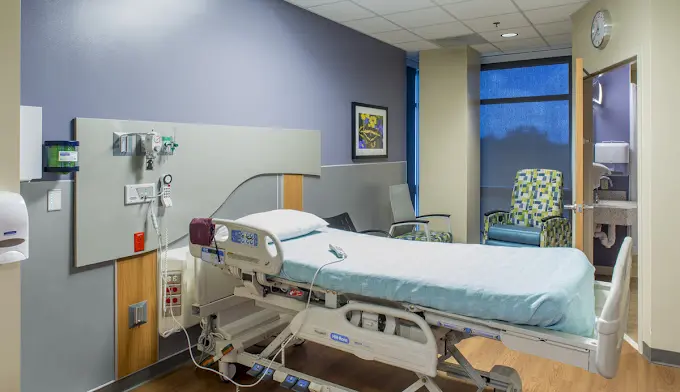
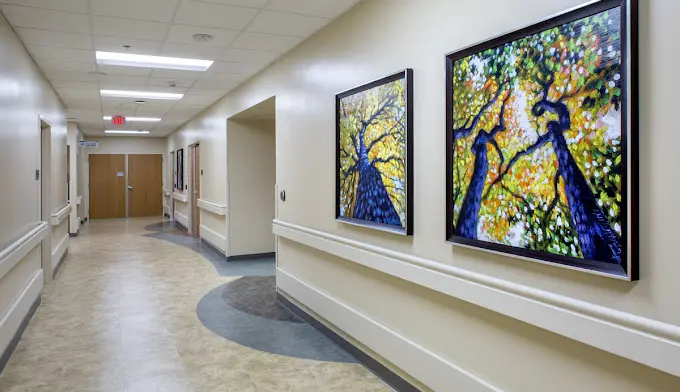
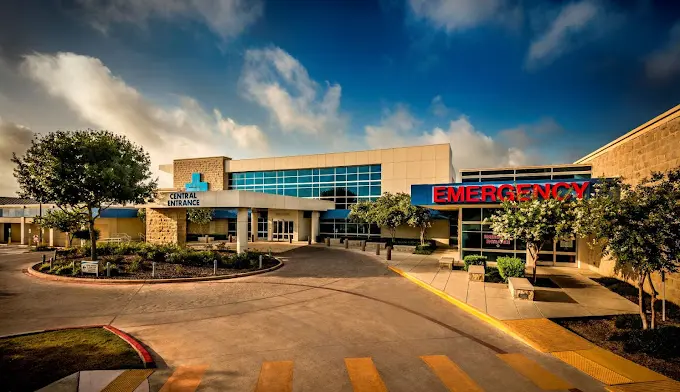
|
New Braunfels, Texas | Located in New Braunfels, Texas is the New Braunfels VA Clinic. This is an outpatient clinic that serves veterans and their families. They offer primary care services here along with physical and occupational therapy and general orthopedic healthcare. While they don’t provide dedicated mental health or addiction support services at this clini | Treatments Programs Payment Options | Very clean, realativly new facility. Excellent treatment. Sometimes longwaits. The staff treat the Vets with respect.
john passons
2 months ago
Much nicer than the previous clinic in town, huge upgrade.
J B
2 months ago
I can't say enough good about the clinic and the staff. They are wonderful. I wish all VA clinics gave the same experience as this one. I would give them more stars, but 5 is the maximum!
Wes Nance
6 months ago
| 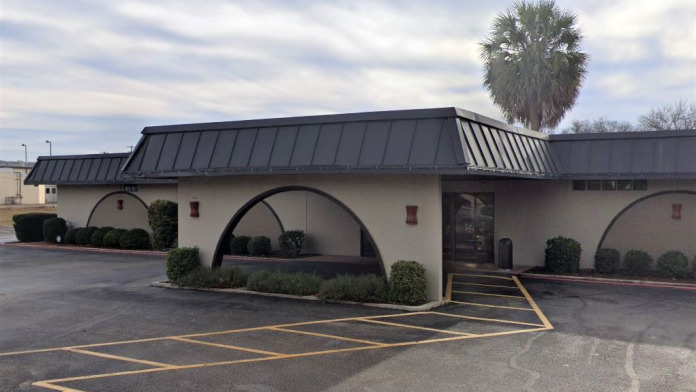
3 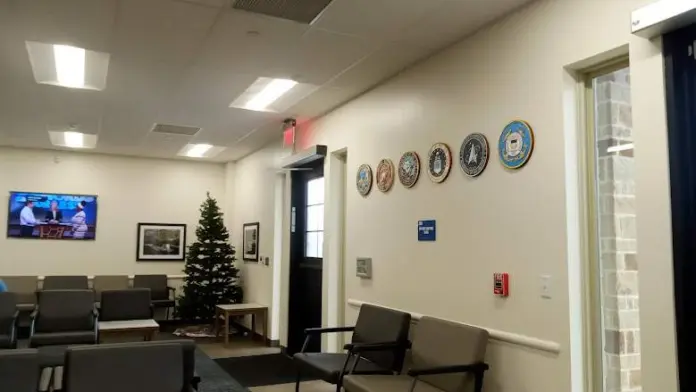
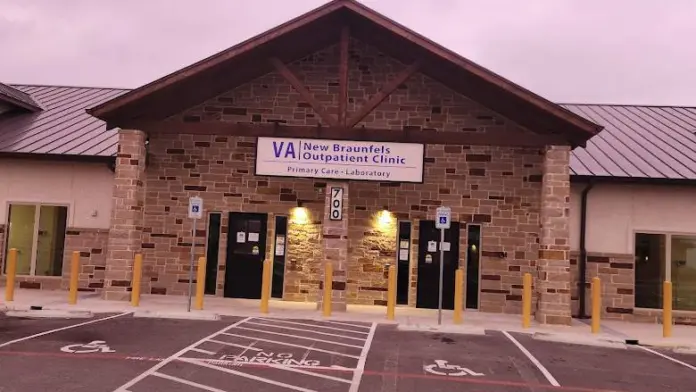
|
Devine, Texas | South Texas Rural Health Services (STRHS) is a Joint Commission-accredited healthcare network serving rural Texas communities. The Devine Behavioral Health facility in Devine, Texas is one of their outpatient substance use recovery and mental health clinics. This facility provides evidence-based substance use treatment that includes medication-assi | Treatments Programs Payment Options | I definitely recommend this clinic. Nurse Jimenez was very kind and patient with me. The doctor made me feel comfortable. The reception staff was very friendly
Alejandra Rubalcaba perez
4 months ago
recomiendo mucho esta clínica siempre me an atendido muy bien a mi y a mis hijos la doctora muy linda gente contesta todas mis preguntas las recepcionistas igual muy lindas gentes siempre con una sonrisa los recomiendo al 100%
Nelly Martinez
9 months ago
Very pleasant with professional personnel and very comfortable atmosphere
Terry Buckingham
2 years ago
| 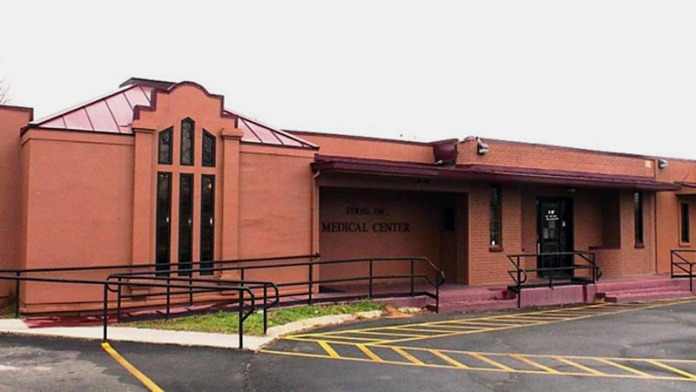
2 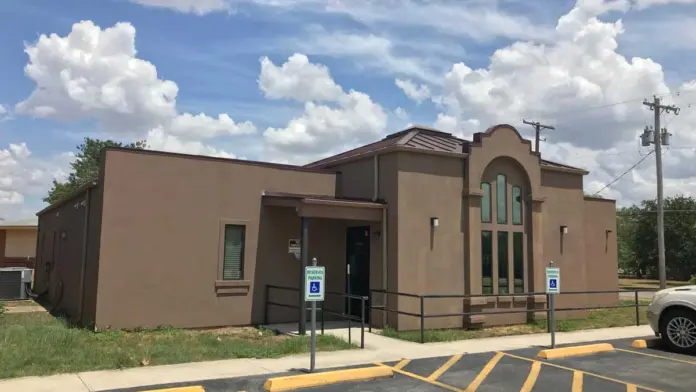
|
San Antonio, Texas | Northeast Baptist Hospital – ACE Unit, located in San Antonio, Texas is a private alcohol and drug rehab that offers treatment for a variety of substance abuse addictions including alcoholism, co-occurring mental health disorders, and opiate addiction. They offer residential care providing long term support for addiction recovery, as well as flex | Treatments Programs Payment Options | From the time my son got registered To the time he got discharged our experience was absolutely great. Our attending nurse and Dr. We're professional and kind and attended to our needs. They were both focus on assuring that we got answers to our medical needs. Thank you for a great experience at Northeast Baptist Hospital
Maria Antonieta Reyes
1 month ago
Staff treated me really well they were very kind and respectful towards me best service I have ever had
Donna Simmons
1 month ago
Just wanted to share our experience at this hospital, because I personally feel it is important to find a place you can trust and be treated with respect and compassion. Although I was not the patient, knowing and seeing how my wife whom I brought in with excruciating pain on her neck and shoulder and sleepless nights was treated, is extremely important for me and her wellbeing. M.P. Leslie and RN Brenda were very professional explaining everything in detail that was going to be done for her treatment to feel better. They both treated my wife in such caring and compassionate way that I honestly would recommend this hospital emergency care for any of your loved ones. Last but but least my wife felt great an hour after leaving the emergency room and had a wonderful restful night. Thank you Northeast Baptist Hospital #1 #emergency #awesome #no pain
Pedro Guerrero
1 month ago
| 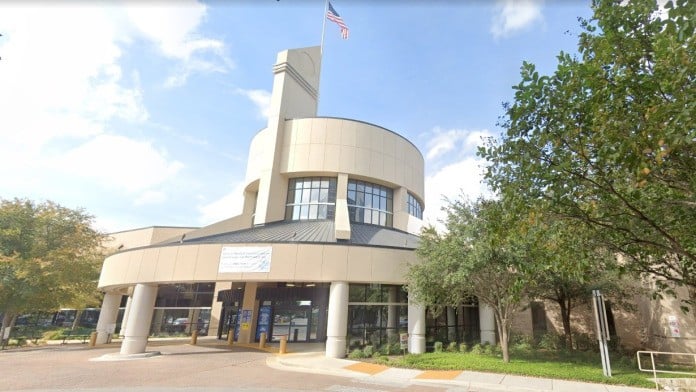
|
San Antonio, Texas | San Antonio For Christ is a non-denominational Christian church in San Antonio, Texas. They are not just a church. They offer lots of outreach programs to the community of San Antonio. They run a homeless shelter, a drug rehab center, food pantry, a daycare, and more. They are located in the South Southwest part of town. You’ll find their church | Treatments Programs Payment Options | This is a blessing this place these pastors Hector garza and Elizabeth garza are both caring and loving pasti thank the lord for putting this church and men's home in my path ..thank you Jesus..
Smileyg Amador
1 month ago
Join our Easter Sunday service 10:30 am
elizabeth peralez
5 months ago
Pastor Hector and Elizabeth are amazing. They are always willing to help.
Selena Sauceda
5 months ago
| 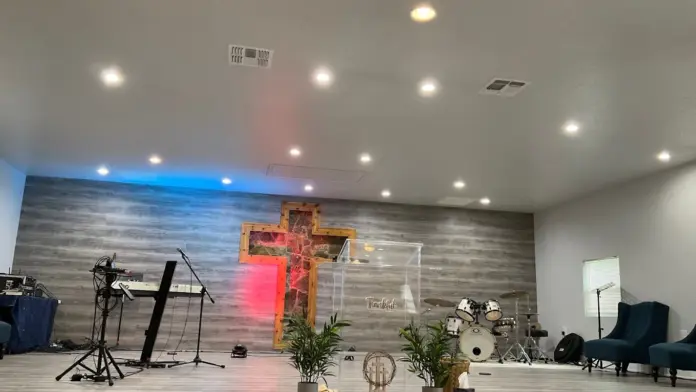
2 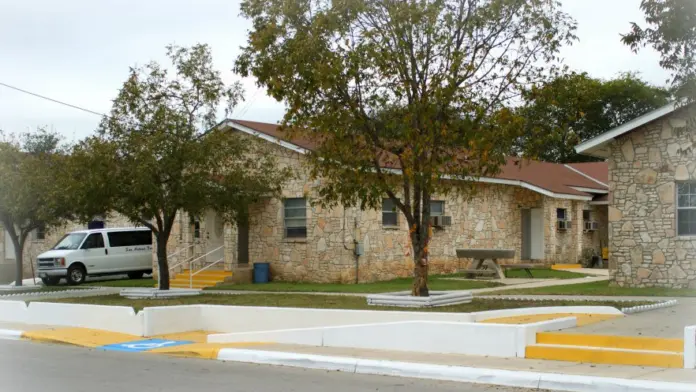
|
San Antonio, Texas | Baptist Medical Center Hospital – Behavioral Health is located in San Antonio, Texas, and serves men and women who need support and treatment for a mental health struggle. If you need immediate care due to a co-occurring diagnosis or substance use disorder, you’ll find treatment through this organization’s emergency room services. Their gener | Treatments Programs Payment Options | Baptist Medical Center Hospital – Behavioral Health has no reviews yet. Leave a review.
| 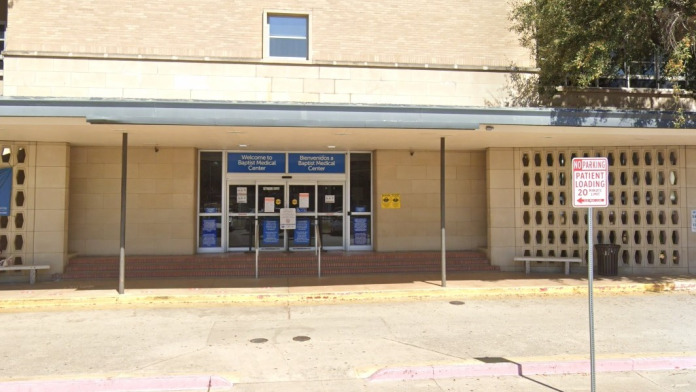
|
Kerrville, Texas | North Star Sober Living in Kerrville, Texas, is a private sober living home for women of all ages. It’s well suited to women who are in early recovery from drug and alcohol addiction. Faith Centered Sober Living This sober living home is Christian faith based and centers on the 12 step approach to recovery. Tenants are expected to provide service | Treatments Programs | North Star Sober Living has no reviews yet. Leave a review.
| |
Recovery Unplugged is a treatment facility located in Austin, Texas. They specialize in treating adults who struggle with co-occurring mental health and substance abuse disorders. The levels of care offered include medical detox, residential treatment, a partial hospitalization program (PHP), an intensive outpatient program (IOP) and traditional ou | Treatments Programs Payment Options | Music was key to my recovery. Very professional staff, clean facilities and thoughtful dual diagnosis approach to recovery.
Jonathan Callahan
1 month ago
I rediscovered my self here. I love recovery unplugged. Coming in off the streets with no home and no money but lucky enough to have health insurance I came through not knowing what to expect. They say home is where the heart is and I'm having growing pains after my 9 week stay. I love all the people i met from residential and php there were Many coming in and many moving forward. Each person inspired me in many ways. I was always learning something. it was a true blessing to have the ability to learn and grow in an environment that encourages the rediscovery in self authenticity, healthy coping skills, music and art therapy. Personalized trauma and family therapy and groups on addiction and over coming negative self talk. Learning how to forgive self and others. Heal. And heal and more healing in a safe vulnerable environment. The the community is full of all forms of love residents, alumni and staff all show up as one in creating this magical environment and experience. Shout out to the whole nursing staff at Alb- road. All the techs( Garret, mia, bailey, ect..ect.at Alb -road and all the therapists and Paulina too even though she still owes me a plate of Mole'. Thankyou Liliana- Lili) for asking me the tough questions, forcing my growth through gentle guidance and listening to me ramble. I love you. I love all of you, my love is real. At php the techs maintain the same outstanding level of care as residential. Thankyou matt, Tony,Brandon, Alex, Nico, Claire..ect...ect... You have a piece of my heart with you . Thankyou for having my back. PhiL, Ross, Bri-ttany, new chick jess. Y'all are amazing and probably have the best job in the building I'm gonna miss hanging out with y'all. Jaime in nursing thankyou for having my back multiple times. I will miss our laughter. Chloe in case management thankyou for listening to me and making magic happen you went above and beyond and made me feel like you've been helping people for years. The light worker you are. Thankyou for your effort. Brent, I love you bro I never once ever disliked your morning discussions in fact I looked forward to them every day. One of the highlights of my treatment. Pls never forget the light worker you are. Tracy your empathy is worth mentioning because it takes a very strong person to feel as much as you, guide, shape, and mold as you do, And be as vulnerable as you are. You work within the light never forget the light that you are. Tina, lulu and shawntil thankyou for the fun groups. Last but not least. Douglas my guide, my teacher, my brother I love you man. You surpassed everything I wanted and needed you to be .. we really went to work you and I, and I needed it.. you define the light, a mentor, a friend.. you are someone I will always look up too and think fondly of for the rest of my life.. Thankyou for being my therapist. It had to be Lili and then it had to be you... I appreciate everything you both gave because without being able to talk about certain things I wouldn't have come to the realization or understanding of past trauma and unhealthy viewpoints and coping mechanisms. And none of this would have happened.. I really appreciate recovery unplugged if you can't tell and this is by far the longest review or message or anything I've ever typed on my phone sober so love, peace, and blessings to all who read.
Thankyou Recovery unplugged.
Solaimon Moes
2 months ago
From darkness to harmony — music helped me find my rhythm again. At this center, every beat brought healing, every lyric brought light. I didn’t just recover; I rediscovered myself through sound. Now, I’m not just surviving — I’m singing my truth. This place gave me my voice back
Jason Dolly
2 months ago
| 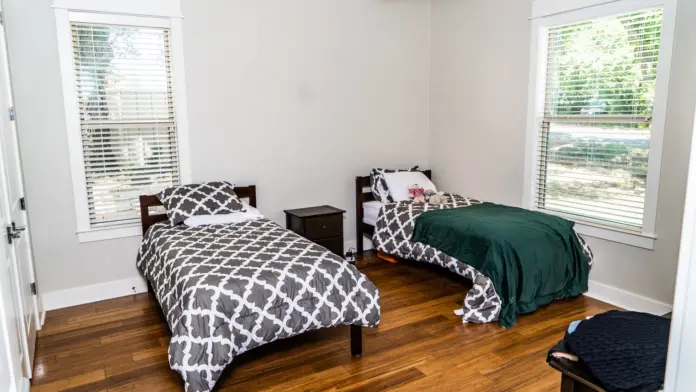



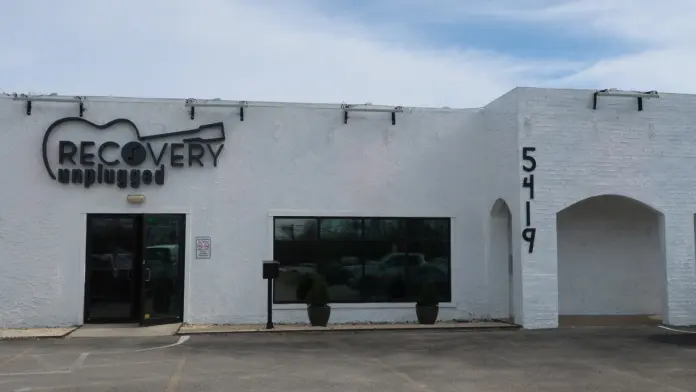
| |
Manor, Texas | BRC Recovery is a luxury alcohol and drug rehab center for adults in Manor, Texas. Here, they specialize in mental health and substance abuse treatment offered through gender specific residential programs. Their program lasts for 90 days. Something that strikes me about this facility is the serene, peaceful setting. The center is located on 70 pri | Treatments Programs Payment Options | I went through BRC in 2018 and am grateful ever since for starting me on my gift of sobriety! Good people who know what they’re talking about, which is hard to come by. Overall great family of programs and would send anyone I love and care about here
Katerina Base
3 years ago
If it wasn't for this amazing program and facility I wouldn't be here today. It's been almost two years since I first walked through the doors of BRC. I would first and foremost like to say that if it wasn't for the staff for taking genuine interest and concern for my overall being and seeing past my physical appearance that I was struggling with something much deeper than I wouldn't have stayed. I see some negative comments and believe me I had some when I first got to Austin, TX. But, sitting here clean and sober almost 2 years later I will admit that if it wasn't for this knowledge that was given to me by this program, I probably wouldn't be who I am today. I've come to my own realization that your addiction will convince your brain of anything to keep you living in the darkness. It will tell you that you aren't and addict or that because you look different that you aren't an addict. I'm currently still working on underlying problems that led me down the road of addiction and using them to help build my strength to continue this journey of recovery. If it wasn't for BRC I would still be a lost 29-year-old mother of 6 beautiful children and I wouldn't know that a healthy relationship looks like or that firm boundaries with unhealthy people are okay. I walk in a new light thanks to this place and the people that make this program possible. One day my children will also thank them for giving them their mom back! No words can ever express the gratitude that I have for BRC. Please have an open mind when going into this program because I promise it will all be worth it. The program is strict but our addiction are even darker.
Mercedes Norris
3 years ago
Great program with an amazing staff. I was truly fortunate to work with people who cared about my well being and were understanding of what I was going through. I can honestly say I wouldn’t have the life I have today without the people who work there.
James Sweeney
3 years ago
| 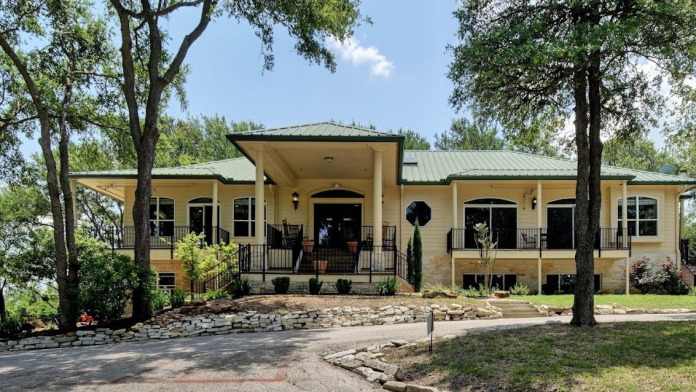
6 6 
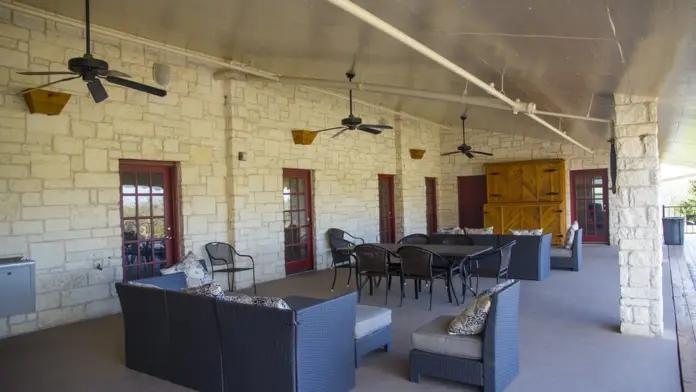

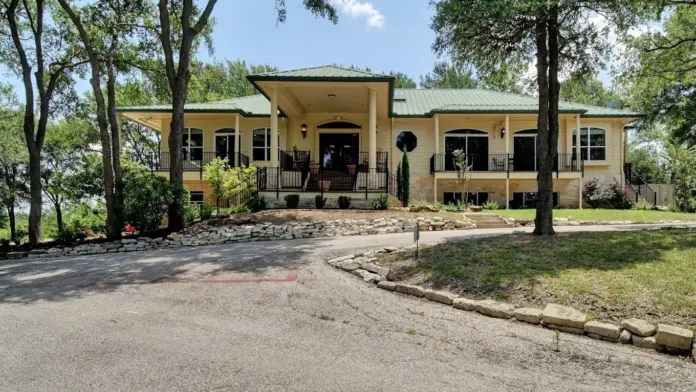
|
Pflugerville, Texas | Less than 20 miles outside of Austin lies Any Length Retreat Drug & Alcohol Rehab Texas, in Pflugerville, Texas. This men’s residential community offers a welcoming, home-like environment to hone in on recovery. You’ll benefit from a safe, stable living space with holistic approaches to get to the root of your addiction or co-occurring disorder | Treatments Programs Payment Options | This place has allowed me to grow spiritually and get back on Track, it's here that I'm able to get in touch with God and heal, without the staff my mentors and the program directors caring for my life I'd be doomed.. I love and believe in this place
Jason Halliburton
4 weeks ago
It was great, they saved my life. Connor Hogan and John DelaGarza helped me in so many ways. I'm glad I came to ALR and joined the fellowship
Kirby Schimmels
4 weeks ago
I came to ALR as A broken man, hopeless and scared of life, only knowing drugs as my escape to life problems. Through ALR Help me To understand that there’s a way out Through the 12 steps and spiritual Guidance that there’s life beyond sub substance abuse, and show me that life in sobriety could be fun and gave me a community that was different than the one I am used to thank you Robert White
Adam Leyva
1 month ago
| 
5 5 
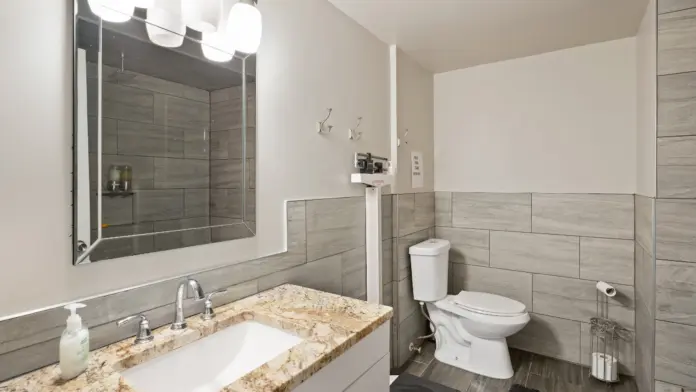

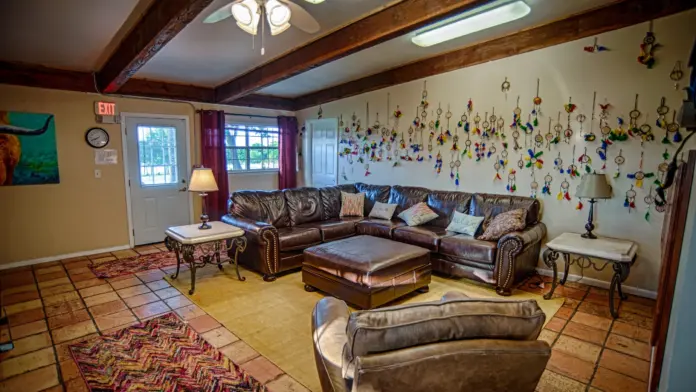
|
Austin, Texas | The Texas NeuroRehab Center is located in Austin, Texas, just 10 minutes from downtown. This is a comprehensive and highly specialized treatment facility that supports children and adults who need medical rehabilitation services and behavioral health care for a substance abuse struggle or a coexisting mental health struggle they’re working th | Treatments Programs Payment Options | I could not have achieved the progress I have now without the rock stars who show out by showing up amazing women who don't ever come in the building talking about is it Friday yet no they come ready to work to make there patients see the potential in themselves to build up there strength and give them tools for success once they hit the streets . All of these very special ladies have started from scratch on me and I was needing a lot of help and Karen and both Rachel's and all the physical therapists and occupational therapists have built my confidence and instilled tools to make me ready to go back into the world and not be afraid but to keep doing therapy and keep getting stronger and open my eyes to knowledge which will be put to the test that life ain't always fair I didn't ask for a stroke but I got one and now am I going to lay down and take this beating no fight and keep fighting . Thankyou for Texas neurology and for all the care techs who work hard to ensure that my stay here was pleasant and that I fed properly and clean. From the bottom of my heart I am so grateful and guess what the best is yet to come.
J . C Kelley (Clinton Kelley)
3 months ago
Absolute best place I have found! Employees are hard working, caring, and dedicated. Now, with new management in place, it has even gotten better! Highly recommend TNC for Rehab.
laura robinson
4 months ago
I was here back years ago I was in unit chap and u guys done so much for me and the first time was almo unit tell Jason and all the staff Alex said thank you for everything
Alex Gardner
7 months ago
| 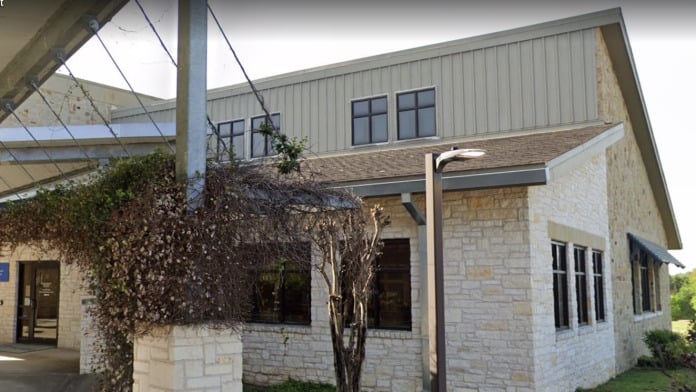
|
Austin, Texas | Seton Shoal Creek Hospital, based in Austin, Texas. Part of the Ascension Network, is a 12 Step focused drug and alcohol rehab in Austin, Texas for youth and adults with co-occurring mental health disorders. They offer medically supervised detox, inpatient care, partial hospitalization programs, and aftercare support. Gender specific and dedicated | Treatments Programs Payment Options | Thier care is excellent. The staff is amazing. Especially Charlie...
Debbie Alvarez
10 months ago
Was going through a very hard time and the nurses and everyone was very helpful I went back in 2016ish and helped me out with my mind!
Vanessa Camarena
2 years ago
Helpful
Tracie
4 years ago
| 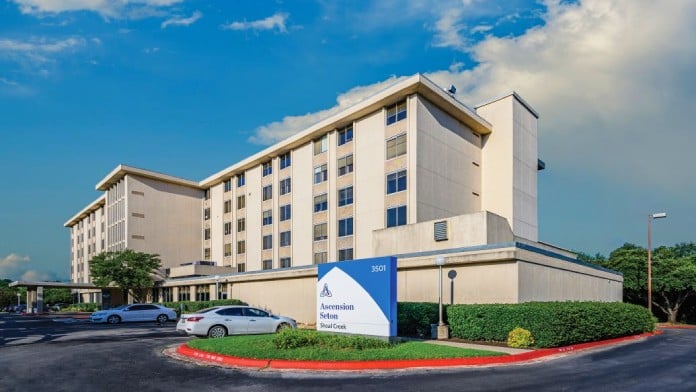
2 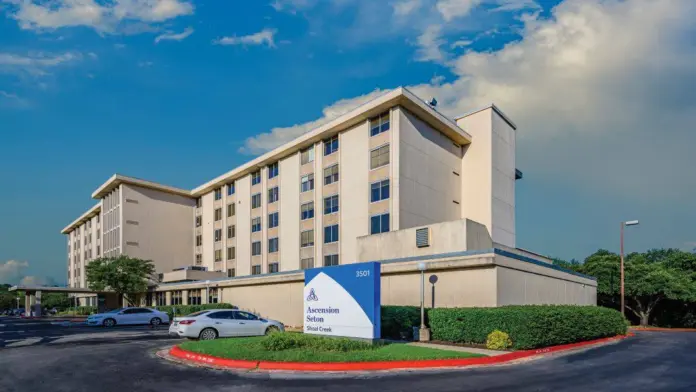
|
Austin, Texas | The Austin VA Clinic in Austin, Texas, provides various services through a multispecialty clinic, including primary care and specialty health services. Austin is the state capital and is well known for the live music community and tech industry. Home to the University of Texas, it boasts a vibrant culture and diverse cuisine. Multispecialty Clinic | Treatments Programs Payment Options | I have been going here for about 9 years. I still go for my primary and RA. Drs even after moving 150 miles away near Palestine due to better Drs. I can't get an appt. for a new problem for a month or so but can go to any VA emergency rm. or several urgent/em. care centers in the nearby community. I get labs in Palestine and community care for dental and other procedures at Athens, BCS etc.. I kinda live in the woods. VA pays for travel pay so I feel blessed that though it is a bit of a hassle sometimes, I still have free healthcare and meds that could cost thousands a month. Last week I had an ignorant golf cart driver refuse to take my service dog as well as myself and walker to front door. He said it was due to insurance policy. I know my Lhasa Apso mix is a bit different from most but please educate your volunteers. Making incorrect assumptions can lead to legal repercussions.
Gregg Eddins
1 month ago
The Austin VA Clinic provides excellent service with a team that truly goes above and beyond for veterans. Every visit has been smooth and efficient, with staff members who are not only professional but also genuinely friendly and compassionate. They take the time to listen, explain, and ensure you feel cared for and respected. From check-in to follow-up, everything runs like clockwork, and you can tell the staff take pride in serving those who served. Highly recommend this clinic to any veteran in the area!
Duane Sherman
2 months ago
Been there several times now for various ailments. Highly professional organization, in every respect.
Christopher Kearns
4 months ago
| 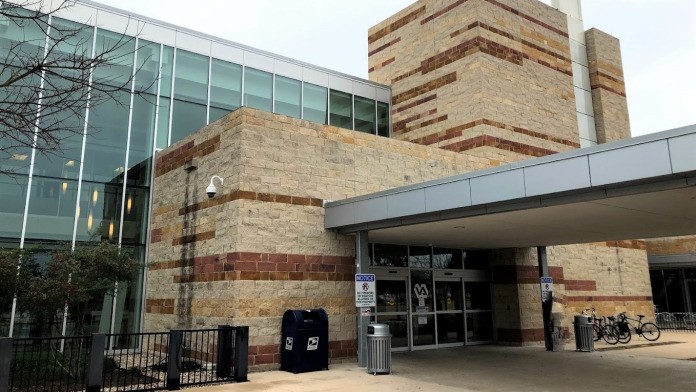
|
Georgetown, Texas | Bluebonnet Trails Community Services - Georgetown San Gabriel Crisis Center is a CARF accredited center with 14 locations in Texas. This location in Georgetown, Texas, is a 16 bed center designed for crisis intervention for mental health and substance use disorder. The center is open 24 hours a day, seven days a week. They’re a TVC certified peer | Treatments Programs Payment Options | Compassion, empathy and respect abound here, best place to be when you need help….
Maryelva Luna
4 months ago
I love working with Bluebonnet they go above and beyond for their clients and I feel they really care!
Krystle McCain
5 months ago
I went for the detox and the nurses were all so kind. The nurse Caroline even would do fun stuff with me and play games with me because I was bored haha. The food was interesting since it seemed multiple staff cooked on certain days. But for the most part it was amazing food. They really cared and it was a fun experience despite the reason I was there.
Clara Griffin
1 year ago
|

Texas is ranked 18th nationwide in terms of addiction treatment affordability, with an average cost of addiction treatment of $56,623.
The costs of drug and alcohol rehab in Texas vary widely and depend on several factors, including:
The costs of addiction treatment listed for cities and states are averages based on the cost of the treatment types listed above. These averages are high due to the cost of medical detoxification and residential inpatient rehab programs.
These numbers also reflect the raw cost of drug rehab, before any insurance coverage. The typical individual seeking addiction treatment can expect to pay much less for outpatient or intensive outpatient services than the averages listed below.
There are many ways to pay for drug rehab in Texas. Most treatment centers accept cash or self-payment, as well as private health insurance. However, there are many treatment centers in Texas that accept Medicaid and Medicare, or offer sliding scale payments or other low-cost payment options. Here’s the complete breakdown of how to pay for addiction treatment in Texas.
Blue Cross Blue Shield is the most widely-accepted insurance for drug rehabs in Texas, with 281 treatment centers in the state accepting their insurance. Aetna is the 2nd most popular with 277 treatment centers accepting it followed by Cigna in 3rd accepted by 260 drug rehabs.
Texas is ranked 43rd nationwide in drug rehab admissions, with 130 rehab admissions per 100,000 population in 2023, which is significantly lower than than the U.S. national average of 621 admissions per 100,000.
The following are the number of Texas rehab admissions in 2023 for each of the 6 most frequently used drug classes, as well as the relative percent for each type of drug.
Source: Substance Abuse and Mental Health Services Administration. National survey of substance abuse treatment services (N-SSATS).
Texas is ranked 43rd nationwide in terms of annual drug overdoses, with an average of 17.9 overdoses per 100,000 population and a total of 5,560 overdoses in 2023. Opioid abuse accounted for 55% of all drug overdoses in Texas, with a total of 3,036 opioid overdoses in 2024.
Centers for Disease Control and Prevention. Provisional drug overdose death counts. U.S. Department of Health and Human Services.
Texas is ranked 22nd for drug and narcotics-related violations, with an estimated 453 narcotics citations per 100,000 population which is higher than the National Average of 421.
All values are per 100,000 population.
Federal Bureau of Investigation. Crime data explorer: Crime trends. U.S. Department of Justice.
Texas has the 33rd highest rate of drunk driving in the nation, with a total of 191 DUI arrests per 100,000 people in 2023 (and 58,260 total DUI arrests).
All values are per 100,000 population.
SafeHome.org. DUI statistics and trends.